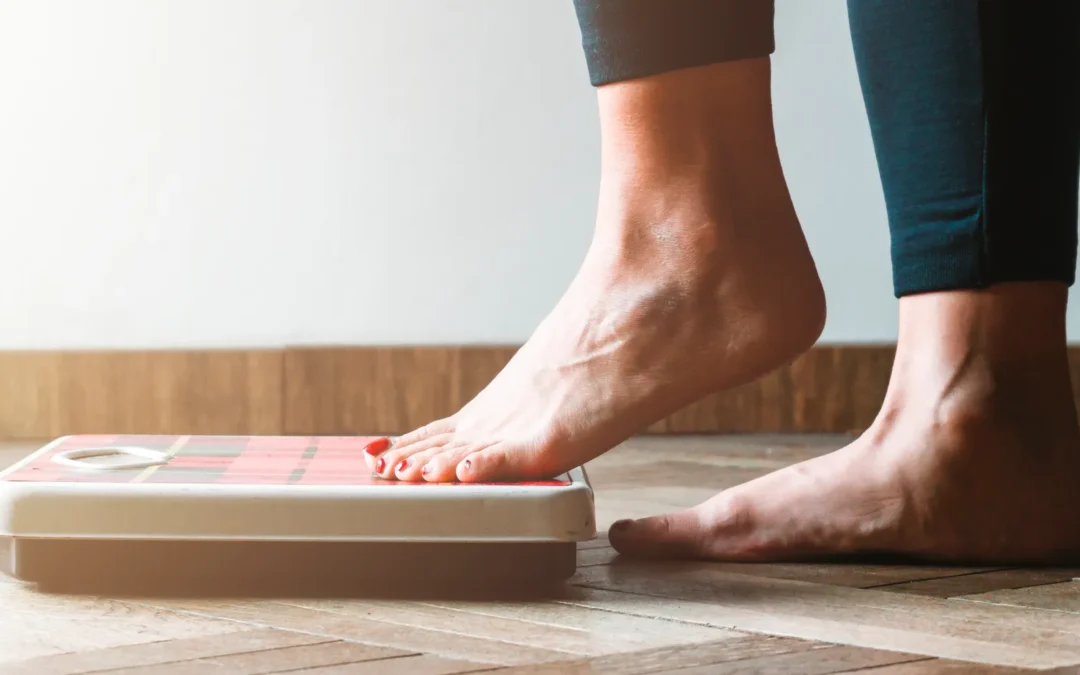It’s been all over the internet and the news; you might even know someone who’s tried it and might be complaining about it: Why am I not losing weight on semaglutide?
Semaglutide is a popular weight loss medication. IVitality helps you understand the reasons behind its fame. Obese people in clinical studies shed up to 20% of their body weight, which is an astounding outcome. So, thinking, ‘Why am I not losing weight on semaglutide?’ seems quite apparent.
Is It Possible to Not Lose Weight on Semaglutide?
Here is the catch: Many semaglutide trials yielded outstanding outcomes for the 86% of patients who dropped weight while using the medication. However, some basic math and a minor shift in viewpoint reveal that if 86% of the patients lost weight, the remaining 14% did not.
When discussing the efficacy of semaglutide, scientists rarely count the 14% of patients for whom it did not appear to be effective. If you are one of them, you may struggle for various reasons. The good news is that some of these challenges are quickly resolved. Others may prove more complicated.
It’s Too Soon!
Semaglutide requires time to function. Yes, many patients lost a significant amount of weight during clinical studies. However, the majority of these studies lasted 68 weeks. That’s over a year.
Although there are no hard and fast guidelines, most endocrinologists and other prescribers do not consider semaglutide for weight reduction a failure unless a patient fails to lose 3% of their body weight over three months.
It might take up to three months to notice any significant improvements, so give yourself plenty of time. Give semaglutide three months to work. If you still need to get results, consult with your doctor.
Your Dosage is Too Low
To reduce typical side effects such as nausea and vomiting, patients are given a low dose of semaglutide initially. Your doctor might gradually increase your dosage as you acclimate to the medicine.
Standard Dosage Chart
A typical semaglutide dose plan begins at 0.25 mg per week. The dose then increases monthly to 0.5, 1.0, 1.7, and 2.4 milligrams per week. If you’re new to semaglutide or are receiving it as a thin shot combined with other components at a clinic, the shot may be insufficient for you. If this concerns you, ask your doctor or provider about raising your dosage.
For more information, click here to read about semaglutide dosage for weight loss.
You Missed a Dose
You might be perplexed over, ‘Why am I not losing weight on semaglutide compound?’. The reason is that while using semaglutide, you will give yourself one injection every week. While convenient, the dosage schedule means missing a dose might have serious consequences. If you forget to take your prescription, you may go without it for a week. This is far longer than if you fail to take medication many times a day.
To help you remember:
- Try to take your semaglutide on the same day each week.
- Connect it with an existing weekly event in your schedule.
You May Need to Eat Differently
Semaglutide mimics hormones that signal your brain that you’re full, making it more straightforward to reduce your daily calorie intake, but the essential weight reduction guidelines remain unchanged: you must eat less to lose weight.
You’ve Hit the Plateau!
The main reason behind, ‘Why am I not losing weight on semaglutide?’ is that you’ve hit the plateau. You may desire to drop considerable weight as rapidly as possible. However, your body is wired to see weight reduction as a potentially harmful experience. Fearing hunger and starvation, your body will naturally want to slow down after losing a certain amount of weight.
You Might Be Constipated
You probably didn’t expect to find constipation on a list of factors that might hinder weight loss, but there it is. To reduce weight, you must maintain your metabolism. This includes keeping your digestive system going. Semaglutide can impede digestion and cause it to back up, slowing weight loss.
You’re Stressed Out
Seriously. Who is not stressed out, right? However, prolonged stress can contribute to weight growth in various ways. If you have too much on your plate, you may need more time to prepare nutritious meals or eat correctly. Your commitments also limit your exercise time. Stress might also cause you to seek sweet and fatty meals that do not support your weight reduction objectives.
You Are Not Sleeping Well
Good sleep is essential for good health. If you’re receiving fewer than eight or more than 10 hours every night, your sleep routine is out of sync. Poor sleep, like stress, may trigger hormonal changes in your body, resulting in various disorders and alterations. One concern is the possibility of gaining weight.
Click here to read about insulin resistance weight loss.
The Bottom Line
Summarizing, ‘Why am I not losing weight on semaglutide?’, the best way to deal with the benefit from your semaglutide is to recall that it is a device, not a substitution. The medication will be essentially more effective on the off chance that you consume a solid eating regimen and exercise more. Assuming you’ve been inactive, you don’t need to begin spending your days at the rec center unexpectedly. Alterations as small as parking farther from businesses and taking the stairs rather than the elevator can be beneficial.

